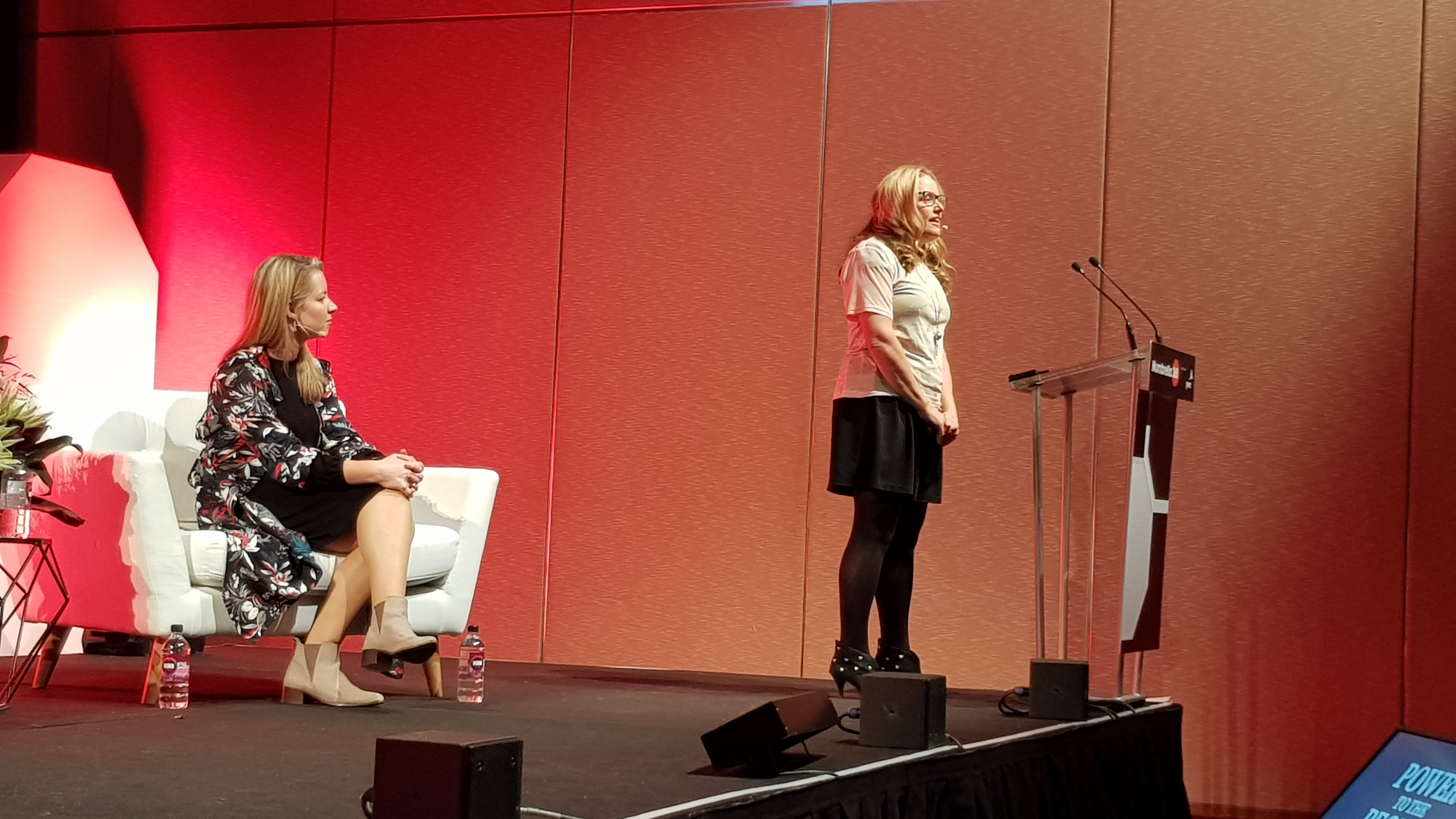Fairfax’s third-party native advertising platform ban has had no discernible impact on traffic
Fairfax’s decision to stop purchasing from third-party click providers has saved the publisher millions of dollars on its branded content, and hasn’t resulted in a sizeable drop in traffic or engagement as a result.
“We found out that buying massive clicks does not yield genuine audiences,” said Kate Cox, Fairfax’s commercial content director during a Mumbrella360 session on content marketing.

Fairfax’s Beth van Koesveld and Kate Cox (L-R)


I wondering whether Fairfax is even vaguely aware of the absurdity. One can only wonder as they continue to degrade the editorial product that was once the value audiences came for. Certainly Hywood is clueless about editorial value and we know that Catalano was only interested in pumping up the tyres.
I suspect this brief item will figure in a post mortem analysis one day.
That aside, do you think Fairfax’s decision is a good one or a bad one?
Fairfax has long been primarily a commercial venture. People forget that it owned such down-to-earth left-wing publications as New Idea. They forget that it owns a huge slice of Australia’s right-wing talk radio market. The Melbourne and Sydney newspapers that some people have loved dearly, when profitable, made much of their money from classifieds. The beloved editorial, though valuable, is now harder to profit from than ever before.
Yes, Fairfax is turning the SMH and The Age into someone more like New Idea (leading from the online side). They do this because they believe that this is their best bet for profit. That is where the company’s heart is, not any particular ideology. This is a major difference between it and the corporate entities behind say The Saturday Paper and The Guardian.
“Save The Age” was a major reader-led campaign in the 80’s. People loved the paper as it was. But not enough of them spent enough money on it to keep it doing what it was.
Perhaps Fairfax’s metro division should offer readers new ways to directly fund the distinctive editorial they so desire.
One wonders whether a publisher that was not a sponsor of the event would be lucky enough to receive such an uncritical report?
Hi Skeptic (who I note shares an IP address with “Question”),
While we always appreciate it when a sponsor recognises that sponsorship can be an effective way to talk to our audience, it does not cover our journalism
Our journo would not have had the slightest interest in whether the speakers worked for a sponsor or otherwise.
Cheers,
Tim – Mumbrella
So Fairfax and Outbrain have parted ways? Because the SMH has been happily directing its readers to this crap for years but has now discovered the moral high ground?
It is no surprise to hear that stopping buying 5 cent clicks on questionable quality sites makes little difference to quality audiences!
I do not think this is strictly true as SMH is still buying loads of clicks for content from Facebook – does that count?
Go to their Facebook page and add “ads” to the URL:
https://www.facebook.com/sydneymorningherald/ads
And you can see many live content ads for:
SAS soldiers committed alleged war crimes in Afghanistan: official report
https://www.smh.com.au/politics/federal/sas-soldiers-committed-alleged-war-crimes-in-afghanistan-official-report-20180531-p4zikl.html
China’s trillion-dollar sharp power play
https://www.smh.com.au/world/asia/china-s-trillion-dollar-project-changing-the-world-20180618-p4zm4k.html
The Sydney roads where weekend traffic is worse than weekdays
https://www.smh.com.au/national/nsw/the-sydney-roads-where-weekend-traffic-is-worse-than-weekdays-20180629-p4zoie.html
‘Stop shagging men’: Sarah Hanson-Young accuses David Leyonhjelm of sexist slur
https://www.smh.com.au/politics/federal/stop-shagging-men-sarah-hanson-young-accuses-david-leyonhjelm-of-sexist-slur-20180628-p4zoev.html
Mechanic to millionaire: the rise and fall of ‘drug runner’ Jim Mavris
https://www.smh.com.au/national/nsw/mechanic-to-millionaire-the-rise-and-fall-of-drug-runner-jim-mavris-20180629-p4zol1.html
‘Remarkable’: The Netflix special everyone is talking about
https://www.smh.com.au/entertainment/tv-and-radio/hell-hath-no-fury-like-hannah-gadsby-unleashed-in-nanette-20180627-h11xdz.html
etc etc
Well someone is advertising Fairfax content on Outbrain today. This article is being promoted on The Guardian:
https://www.smh.com.au/money/investing/how-kate-is-building-wealth-outside-superannuation-20180621-p4zmsb.html